![]()
![]() Noong Marso 31 nang gabi, o ka-hatinggabi, nakatanggap pa kami ng huling hirit sa #DionaTweet mula kay Twitter user Corona Virus Disease (COVID)-19:
Noong Marso 31 nang gabi, o ka-hatinggabi, nakatanggap pa kami ng huling hirit sa #DionaTweet mula kay Twitter user Corona Virus Disease (COVID)-19:
the virus and the Monstrance
duel to death in a dance
to give you another chance.
Kung hindi ako nagkakamali, 5 ang kaniyang ipinadala.
At ito ang pinakaeksakto sa pagpatak ng 12 midnight.
Kumbaga, itong dionang ito ang pinakahuling lahok na pasok na pasok para sa nakaraang timpalak nitong Marso.
Tuldok na ito kung tutuusin.
Subalit gagawin natin itong tutuldok.
Bakit?
Sapagkat, ngayong Abril, na Pambansang Buwan ng Panitikan, ay ating uumpisahan ang isa pang hamon.
Gaya ng ipinangako namin sa inyo, may isa pang paligsahan.
Pasusulatin naman namin kayo ng kuwento.
Sa dinarami-rami ng mga nangyayari sa loob at labas ng bahay nating sawi, tiyak hindi tayo mauubusan.
Dahil nga sa nagbabantang Extended bilang karugtong ng Extreme na at Enhanced pang Community Quarantine, pihadong makakasulat kayo kahit ng isa pang E – epiko!
Ngunit wala muna tayong tugma.
At binibilang na talinghaga.
Magpahinga tayo sa pagtula.
Teka muna.
Ako yata ang di makawala.
Kaya, magkuwento lamang kayo nang magkuwento.
Sa buong buwan ng Abril, inaanyayahan namin kayong sumulat ng inyong karanasang maligaya o malungkot o masalimuot o kung ano pa.
I-post ito sa Facebook at i-tag ang Rappler at ang Foundation AWIT.
Iikot ito sa COVID-19, gamit ang 19 salita, susulat kayo ng daglî.
ANO ANG DAGLI?
Ang daglî, ayon sa Sagisag Kultura ng Filipinas, ay isang kuwento na mabilisang isinusulat at inilalabas.
Mas madalas kaysa hindi, ang daglî noong una ay “mapagpatawa” at “nagpapahayag ng matapang na pamumunáng pampolitika.”
Maihahambing ito ng mga Tagalog sa pasingáw sa isang pagsasalaysay lamang tungkol sa pag-ibig.
Para kay Fausto Galauran, ang daglî ay isang “bukas na liham” ng pagtatapat para sa isang paraluman o pagbanggit ng isang pangyayari o tagpo para sa sinumang nilalangit.
Alam ba ninyong ang itinuturing na makabuluhang daglî ay isinulat ng isang Bisaya sa wikang Sebwano?
Pinamagatan itong “Maming” at lumabas sa Ang Suga noong Hulyo 16, 1901.
At ang awtor?
Walang iba kundi ang lolo ni Vic Sotto.
O di-kaya’y lolo sa tuhod ni Mayor Vico Sotto.
Magkatokayo sila ni Tito Sotto na ang buong pangalan ay Vicente Sotto III.
Ang aking tinutukoy ay si Vicente Sotto, na hindi lamang isang politiko kundi isa ring peryodista na mas kinikilala bilang “Ama ng Wika at Panitikang Sebwano.”
Sa kabilang banda, sumulat din ng daglî si Deogracias Rosario, na itinuturing namang “Ama ng Maikling Kuwentong Tagalog.”
Hindi iilan ang mga daglîng isinulat sa Espanyol at Ingles.
Maitutumbas ito sa rápidá, instantanéa, o rafága ng Espanya.
O maitatapat ito sa flash o sudden fiction ng Estados Unidos.
Subalit, kung susuriing maigi, maigigiit ang mga pagkakaiba.
Isaalang-alang natin ang depinisyon o deskripsiyon ni Alejandro G. Abadilla (AGA), na napansing ang mga daglî ay didaktiko o “nangangaral” o nagsesermon.
Samantala, ang flash o sudden fiction ay magkaiba rin subalit, para kina Robert Shapard at James Thomas, editor ng Flash Fiction Forward: 80 Very Short Stories (2006) at New Sudden Fiction: Short-Short Stories from America And Beyond, ang dalawang ito ay kapuwa nagpapagitaw o tumatawag ng panagano o mood at nanggigising ng isip o intelek – habang ipinapakilala tayo sa mga taong interesante o inilalarawan sa kakaiba ngunit nauunawaang pangyayari.
Ano’t ano man, ang karaniwan sa lahat ay ang pagtutuon ng pansin hindi sa haba kundi sa lalim o liwanag ng bisyon sa pagpapahalaga sa pagiging tao o pagpapakatao.
Tanda lamang na kaya o may kapangyarihan ang daglî na umayon, o sumang-ayon, o sumabay o sumakay sa panahon.
Dagsa ang daglî sa mga babasahin noong sinakop ang Filipinas ng mga Amerikano.
Kung kaya, masasabing ang daglî ay naging daluyan ng pang-uuyam o pangungutya, lalo noong tayo ay nasa ilalim ng mapanupil na pamahalaan.
Sa pagpapalit ng kolonya – mula Espanyol patungong Amerikano – isa sa mga uring pampanitikang pinili ng mga manunulat ay ang daglî.
Noong 1902, ang mga isinulat ni Lope K. Santos na daglî ay ihinalintulad ni AGA sa sketches.
Basahin ang Muling Pagsilang ni Santos – na unang lumabas sa pahayagang Tagalog – upang maintindihan ang katangian ng mga namayaning daglî.
Oo, nandoon ang anggulo ng pagsinta, pero hindi maiwasan ang panig ng panunuligsa.
BAKIT NAMAN ANG IKLI?
Ani AGA: “Ang naging pagtangkilik ng mga Pilipino sa mga daglî ay hindi lang dahil sa panlalamig nila sa mahahabang babasahin, kundi dahil sa naging angkop sa pangangailangan ng mga tao noon na makatipid ng panahon at gugol sa mga babasahing umaaliw na’y nagangaral pa rin.”
Saksi ang Dekada ’90 sa pagbangon at pagbagsak ng mga di-mahahabang prosa.
Oras na para ibalik sila.
Ngayon pang nagkakasya tayo sa kuwadro ng cellular phone, iPad, laptop, at iba pang gadget na grabe sa liit pero lintik sa pagiging high tech.
Mula noon hanggang ngayon, diyaryo ang isinilang, lumaki, at tumanda sa ganitong kalagayan.
Sanay na sanay ang mga peryodistang isilid ang mga titik sa em at en.
Inabot ko pa nga ang pagbibilang ng mga salita at parirala para sumakto sa ulo ng balita.
At bilang manunulat, ako ang isa sa naging tagapagtaguyod ng Panitikang Panakip-butas!
Nariyan din ang mga magasing nagsilang sa mga minadaling ginto na pagtagal ay inaampon ng mga aklat o antolohiya ng iba’t ibang literatura, pangkampus o panrehiyon o pambansa o pandaigdig man ang mga ito.
Noong 2003, ang kuwentistang Filipina na isinilang sa Estados Unidos na si Noelle de Jesus ang nakaisip bumuo ng antolohiya ng Fast Food Fiction Short Short Stories To Go na inilimbag muli noong 2014 at inilabas ang Singapore edition noong 2016.
Isang kasamahan namin noon sa College Editors Guild of the Philippines (CEGP), si Roland Tolentino, ay isa mga kuwentistang nagsimula bilang editor sa pahayagang pampaaralan. Kaya, hindi kataka-taka nang maglabas siya ng ng 100 daglî mula sa mga balita: Sakit sa Kalingkingan: 100 Dagli sa Edad ng Krisis (2005). Pagkaraan, naglabas siya ng kaniyang pag-aaral dito: Weder-weder Lang! Ang Materialidad ng Panahon at Espasyo ng Dagli (2007) at Ang Dagling Tagalog 1903-1936.
Halos magkasabay silang naglathala ni Alwin Aguirre ng kaniyang Semi-kalbo at iba pang kwento (2005), na may pagka-sci-fi gayong ito pa rin ay pantao at hindi pang-robot na sipat sa estado sa lipunan.
Sinundan din ito ng isa pang eksperimental na daglî ni Eros Atalia, na nasa kontrobersiyal niyang Taguan-Pung: Koleksyon ng Dagling Kathang Di-Pambata at Manwal ng mga Napapagal Kopi Teybol Dedbol Buk (2006) ukol sa karanasan ng mga bata ngunit di-pambata. Inilimbag ito ng University of Santo Tomas Publishing House na diumano’y pinakiusapan siya na palitan ang titulo nito sa halip na sensitibong “Manwal ng Pagpapatiwakal” at pumayag naman ang awtor nang buong pagpapakumbaba. Pagkalipas ng 12 taon, muling maglalabas siya ng Taguan-Pung (2014) na tututok na sa ugaling Filipino at usaping panlipunan.
Mabunga sa daglî ang gitna ng unang dekada ng bagong milenyum.
Marahil dahil nga sa ang pormang pampanitikang ito ay pang-milenyal.
Isa na rito si Loree Cruz-Mante sa kaniyang Biyaheng FX Round Trips to Pinoy Life (2006), na paglalarawan sa karaniwang buhay-pasahero ng mga pampublikong sasakyan.
Sa sobrang sigla ng siglong ito, nagpasiya si Vicente Garcia Groyon III na mangumbinsi ng iba pa at mangolekta. Ito ang naging Mga Kuwentong Paspasan (2007), na tila mas naimpluwensiyan ng flash o sudden fiction kaysa daglî.
Katunayan, kapanabayan ito ng isa pa sa Ingles na may titulong Very Short Stories for Harried Readers at ng nabanggit kong koleksiyon nina Shapard at Thomas.
Pinabulaanan ni Abdon Balde Jr na siya ay hanggang nobela na lamang at ang daglî ay para sa mga milenyal. Hindi naging madali ang pamimili niya ng pamagat dahil nagtanong-tanong muna siya kung ano dapat ang tawag sa “panibagong porma ng maikling prosa.” Kapagdaka ang sagot ko ay “Kagyat” at karaka ring tumugon ang iba pa.
Pero si Mike Coroza ang nagwagi sa kaniyang “KISLAP” o Kuwentong Isang Iglap.
Kaya nagbunsod ng 100 Kislap (2011) si Balde, na tiniyak na ang bawat kuwento niya ay may tig-150 salita, walang labis, walang kulang.
Rumesbak na naman si Atalia nang magpakitang-gilas siya sa kaniyang Wag Lang Di Makaraos: 100 Dagli (Mga kwentong Pasaway, Paaway at Pamatay). Ang Pambansang Alagad ng Sining na si Bienvenido Lumbera ang unang pumuna’t pumuri sa kaniya: “Kung lilingunin ang kasaysayan ng daglî bilang anyong pampanitikan, makikitang bago ang hipo ni Eros sa anyo noong namalasak sa mga dyaryo mga unang taon ng ika-20 siglo.”
Kung paramihan lang din naman ng danas, di magpapatalo ang overseas Filipino worker (OFW) na si Jack Alvarez sa kaniyang Ang Autobiografia ng Ibang Lady Gaga (2012). Sa unang tingin, kinuwestiyon ito ni Reuel Molina Aguila kung daglî nga ba ang mga ito o hindi, ngunit, sa bandang huli, kinumbinsi niya ang sarili na ang mga ito ay daglî at hindi lamang “maiikling personal/malikhaing sanaysay.”
Isa sa mga kauna-unahang tesis tungkol sa kaniyang koleksiyon ng daglî ay isinulat ni Hazel Karyl R. Madanguit para sa kaniyang BA Malikhaing Pagsulat sa Filipino sa Unibersidad ng Pilipinas Diliman. Tinawag niyang Sa Pagmamadali, ito ay kalipunan ng 14 na daglî hinggil sa mga taong nabuhay sa pagmamadali dahil minamadali na sumasalamin sa suliraning panlipunan.
Para naman sa kaniyang MA Malikhaing Pagsulat, isinulat ni Melencio Fernando Jr ang tesis niyangKumpisal: Kalipunan ng mga Dagling Di-Banal. Tungkol ito sa kasalukuyang kalagayan ng Katolisismo sa Filipinas. Dating sekretaryo ng pari, siya ay lumikha ng mga daglî ukol sa kanila at mga nangyayari sa loob ng kumbento at simbahan. Nakatakda sana siya na magdepensa ngayon.
Kaya lamang…
***
MGA HALIMBAWA NG DAGLING MAY 19 SALITA:
1.
Paulit-ulit kong pinakinggan ang “All By Myself,”“Right Here Waiting,” “Survivor,” at “The Climb.” Umiyak akong mag-isa.
2.
Madaling dumistans’ya kung ikaw ay nakatira sa isang subdibisyon, may sariling kotse, at hawak ang sariling oras sa trabaho.
3.
Gusto kong panoorin ang bayaning isinilang sa Wuhan, China. Pero may pumigil sa buong mundo na manood ng “Mulan.”
4.
Naglaro ng ML. Nagbasa ng libro. Nakinig ng podcast. Naglaro ng ML. Nagbasa ng libro. Nakinig ng podcast. Naglaro…
5.
Pinakinggan ko ang tinig ng Diyos. Wala akong marinig. Para Siyang sinisipon at umuubo. Pa’no na kaya ako, Lord?
6.
“Ano ang lason?” Tanong ko sa matanda. Sagot niya: “Lahat ng bagay nang sobra sa kailangan mo.” Nagkatinginan kami.
7.
Sa Mayo. Magtsitsismisan daw sina Buwan, Venus, at Jupiter. Di nila alam. Mukha silang smiley sa Kalawakan. Pagtatawanan tayo.
8.
“Gawa ka ng gamot sa COVID-19.” Sagot ng scientist: “Bigyan mo muna ako ng suweldo ni LeBron James.”
9.
“Ina, ikaw ang puso ng tahanan natin.” Ngayon ko lang ito nasabi. Sa ipinapagawa kong lapida para sa kaniya.
10.
My God! I had been so busy with all these timekillers that I forget one most important calling. Writing.
Dali na!
Daglî na!
Paki-tag ang https://www.facebook.com/rapplerdotcom/ at https://www.facebook.com/Foundation.AWIT/.
– Rappler.com
Sa ngalan ng siyensiya’t sining, tumutulong si Vim Nadera sa mga maykanser, may AIDS, nagdodroga, “comfort women,” batang kalye, inabuso, naipit sa mga kalamidad na likha’t likas, at mga nagdadalamhati. Ilan sa kaniyang mga proyekto ay Textanaga, Panitikabataan, panitikan.com.ph, Pistang Panitik, Pagpupugay sa mga Pambansang Alagad ng Sining. Conspiwriters’ Tuesdays, O.M.G. (Open Mic Gig), Kaakuhan, Word Jam, at Akdang Buhay. Itinanag nila ng kaniyang kabiyak ang Foundation AWIT (Advancing Wellness, Instruction, and Talents) Inc.
![]()












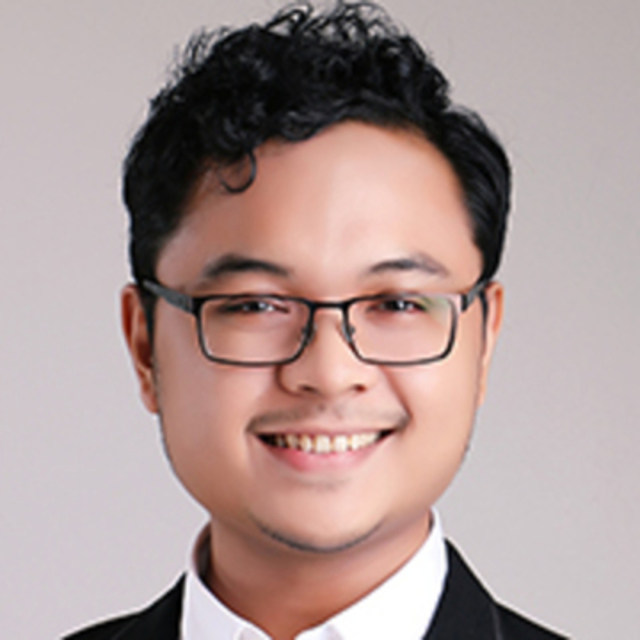

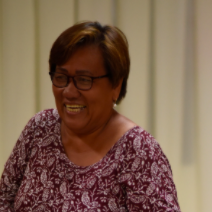

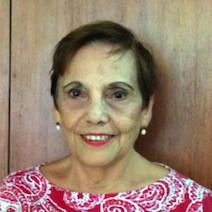



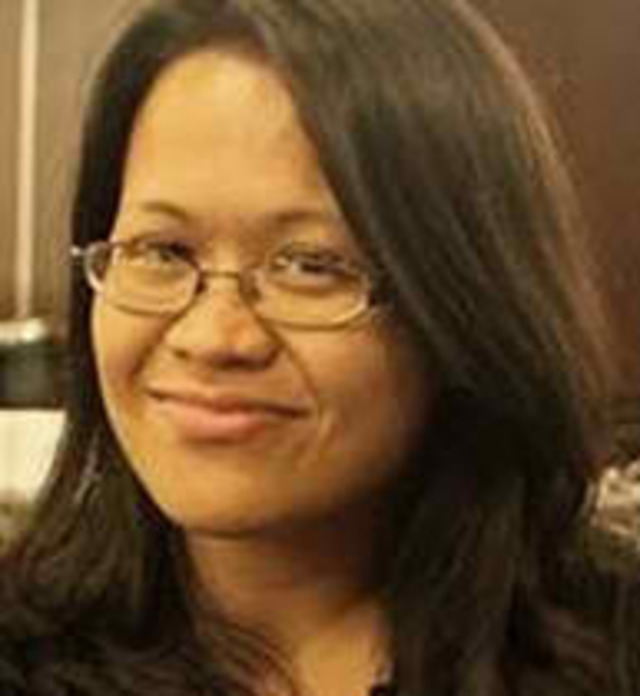



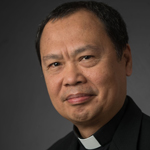

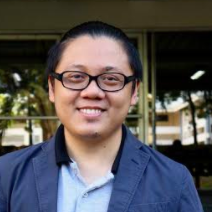



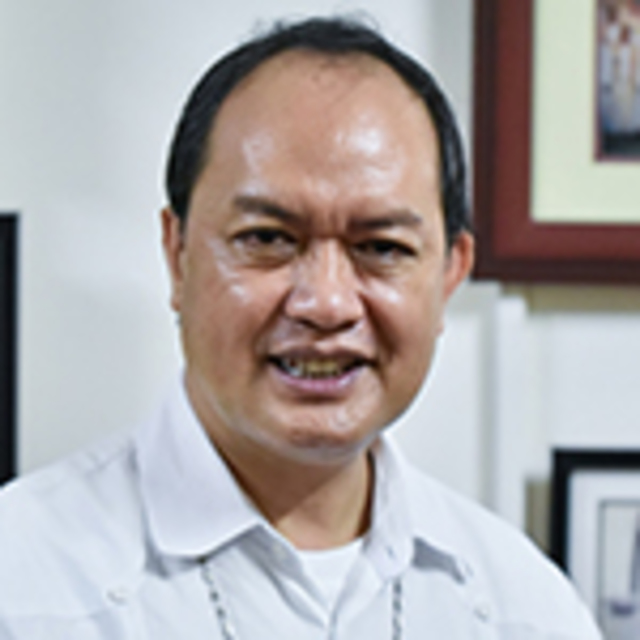

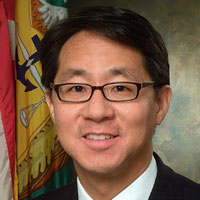
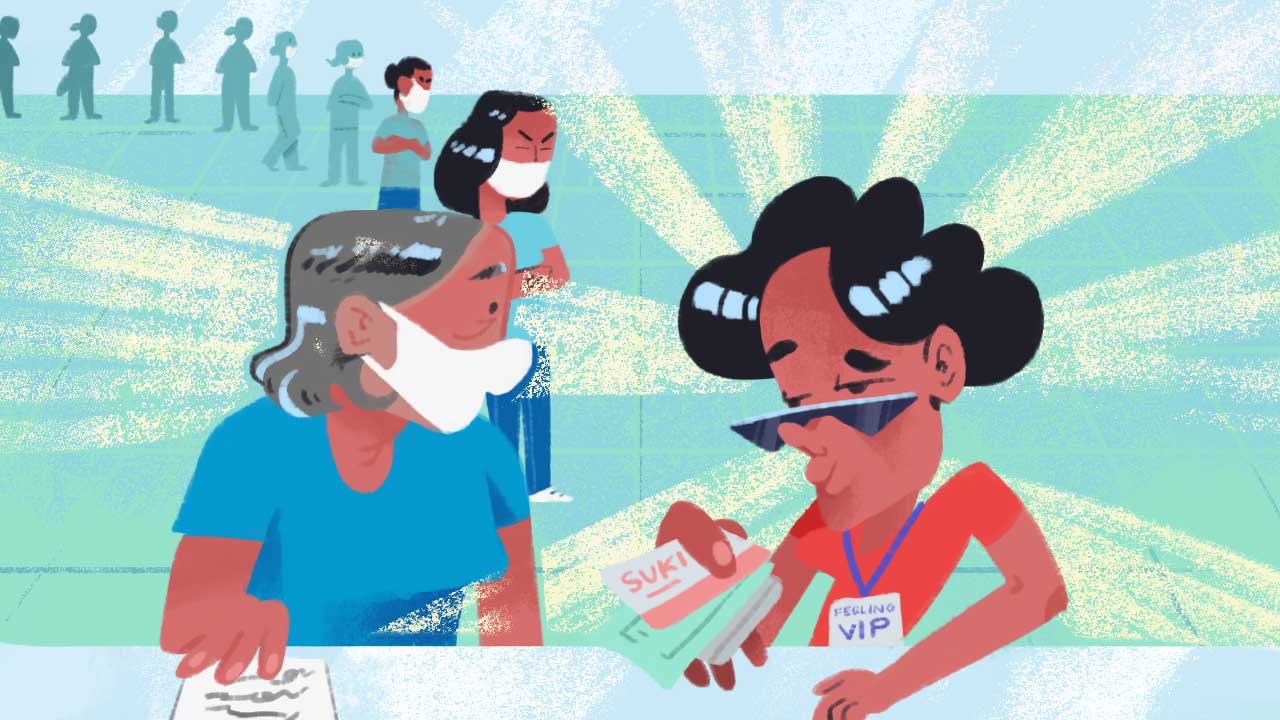




 Noong Marso 31 nang gabi, o ka-hatinggabi, nakatanggap pa kami ng huling hirit sa #DionaTweet mula kay Twitter user Corona Virus Disease (COVID)-19:
Noong Marso 31 nang gabi, o ka-hatinggabi, nakatanggap pa kami ng huling hirit sa #DionaTweet mula kay Twitter user Corona Virus Disease (COVID)-19: 



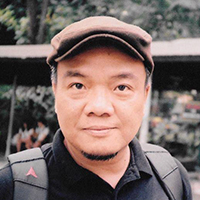 Dahil wala akong bagahe ng pang-araw-araw na suliranin sa karaniwang trabaho ko noong pre-COVID-19 quarantine, ngayong panahon sana masarap maging productive. If you know what I mean.
Dahil wala akong bagahe ng pang-araw-araw na suliranin sa karaniwang trabaho ko noong pre-COVID-19 quarantine, ngayong panahon sana masarap maging productive. If you know what I mean.